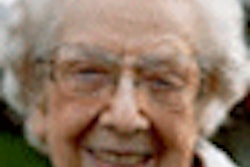Retirees may be at risk for sporadic dental care or even stopping dental visits all together due to dental coverage transitions and insurance status, according to a new study in the American Journal of Public Health (August 18, 2011).
Researchers from the University of Maryland School of Dentistry examined dental care utilization transition dynamics in the context of changing dental coverage status among a population around the age of retirement. They were particularly concerned with discovering how changes in dental coverage and changes in retirement status affected the relative likelihood of having irregular dental care utilization patterns.
The researchers used data from the Health and Retirement Study (HRS) to assess the characteristics of persons ages 51 years and older based on whether they had maintained or changed their dental care use status between the 2004 and 2006 waves of HRS. The sample consisted of 16,345 individuals interviewed in both the 2004 and 2006 HRS, representing 74,047,165 members of the community-based population who were ages 51 years and older at the time of the 2004 interview.
Americans ages 51 years and older who lost dental coverage between the 2004 and 2006 survey periods were more likely to stop dental care use between periods than those without coverage in both periods, the researchers found. Those who gained coverage were more likely to start dental care use between periods than those without coverage in both periods.
“Although we were only able to look at a short time horizon with the HRS data and therefore do not know the longer-term use patterns of those who lose coverage around retirement age, even short-term lapses in preventive coverage can result in more invasive and costly procedures in the future,” the study authors noted. “For retirees on fixed incomes, the high cost of dental procedures could have important financial consequences, and the delay of care could lead to worse overall health status and affect more than only dental costs.”



















